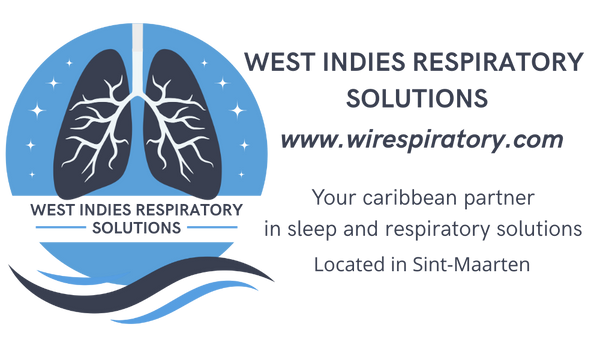Obstructive Sleep Apnea Syndrome (OSAS) : What You Need to Know

We often hear about obstructive sleep apnea in the media or in conversations around us, as Obstructive Sleep Apnea-Hypopnea Syndrome (OSAS) affects approximately 7% of the French adult population, including 35% of people over the age of 65 (see studies below).
1. What Is Obstructive Sleep Apnea-Hypopnea Syndrome (OSAS)?
OSAS is characterized by the repeated partial (hypopnea) or complete (apnea) interruption of breathing for at least 10 seconds, several times per hour during sleep.
These breathing interruptions are caused by a mechanical blockage in the upper airway at the back of the throat—either partial (hypopnea) or complete (apnea).
Each apnea or hypopnea leads to an unconscious arousal (micro-arousal), which prevents the person from reaching deep sleep, the stage essential for muscle and brain recovery.
The Apnea-Hypopnea Index (AHI) is used to measure the severity of OSAS. It's calculated by dividing the total number of apnea and hypopnea events by the number of hours slept.
- Mild OSAS: 5 to 15 events per hour
- Moderate OSAS: 15 to 30 events per hour
-
Severe OSAS: More than 30 events per hour
2. How to Detect Your Risk of Obstructive Sleep Apnea
There are several free self-assessment tests available in the Health Tests section of our website:
- Berlin Questionnaire
- Epworth Sleepiness Scale
- Pichot Fatigue Scale
3. Step Into the Shoes of a Sleep Apnea Patient to Understand the Impact
Try this short simulation—alone or with a partner—to feel what an apneic patient experiences every night:
Take a stopwatch or your phone’s timer.
- Breathe normally
- Then stop breathing mid-exhalation… 10 seconds…
- Breathe again… 4 seconds…
- Stop again… 20 seconds…
- Breathe… 5 seconds…
- Hold your breath… 20 seconds…
- Breathe… 3 seconds…
- Stop breathing again… 10 seconds…
- STOP
You’ve just simulated 90 seconds in the life of a person with sleep apnea. Imagine the impact on your heart and your sleep quality every night!
Conclusion
Now you understand what OSAS is. If the explanations and tests suggest you might suffer from sleep apnea, consult your doctor promptly. They will refer you to a specialist who can diagnose your breathing activity during sleep. Sleep apnea can lead to mild to severe health complications, so it’s crucial to follow an appropriate treatment.

